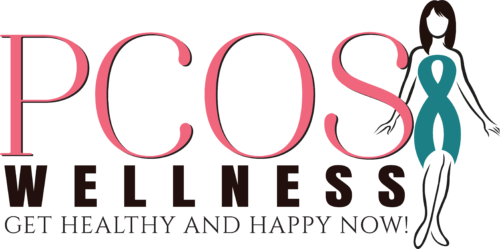Before you found out that your daughter has PCOS, you probably thought:
- “She’s entered those crazy teen years.”
- “My girl is a handful. Is this ever going to get better?”
- “I don’t get it – she’s smart, she’s beautiful – why is she so miserable?”
PCOS is a real emotional roller coaster, for sure, and it’s even more complicated when your teenage daughter has PCOS. In addition to all the usual teen stuff, she’s probably dealing with more anxiety, depression, and moodiness than usual. It can be challenging, but there are some hidden rewards, along with some ways to keep your family in balance when your daughter’s hormones are out of control.
First, let’s address something important: your possible feelings of guilt, shame, anger, and sadness:
- You may be feeling guilty, thinking that you passed along some genetic curse to your daughter that resulted in PCOS. Yes, there’s evidence of a family linkage with the syndrome, but that doesn’t mean you or your ancestors caused it. The causes are still poorly understood, and probably complicated.
- Do you have shame about your broken, damaged child, or the way she looks or behaves? Some of that you are going to have to learn to forgive yourself for, and the rest (how she looks and behaves) is stuff you can help fix. Most of us have some physical or genetic imperfections; it’s just that your daughter’s PCOS may put hers on display more intensely.
- It’s normal to have anger about PCOS, whether you are the one who has it, or you are the parent of a young woman who has it. You were hoping for a “perfect” child, and now your kid has a major health issue – one that causes mood swings, irritability, fatigue, and major issues with her appearance too. It’s hard to figure out safe and effective treatments, find the right doctors, and maybe even to pay for special foods, exercise classes or sports training, medications, or supplements. But don’t let anger define you; it’s not good modeling for your child, and it only makes you feel worse.
- A lot of times, when you’re feeling angry, it’s covering up sadness. If you know much about PCOS by now, you know that your daughter is at higher risk for everything from eating disorders, cardiovascular disease, cancer, diabetes, depression, and infertility. And that IS profoundly sad. You’ve got to grieve it, man. Maybe even talk to a therapist who specializes in health psychology or men’s issues. It’s okay to be sad, but let’s not let it go so long it turns into full-on depression.
How to Fix It
Be mindful of risks to the entire family’s health
PCOS can be passed from the mother’s side, the father’s side, or both. Your daughter’s sister(s) may not be showing symptoms of PCOS but may be at higher risk of the same health concerns. Males in the family are also at higher risk of endocrine abnormalities. Be especially mindful if there’s any family history of diabetes or thyroid disorders; these things tend to go together, so everyone needs to be on top of their health. It will help your daughter feel less isolated with her PCOS too.
Be open and honest
Be open and honest with your daughter and the rest of the family when talking about PCOS. The one with PCOS isn’t the only one who needs to know about it. You all need to know the health risks, how to combat those risks, and how to work on building a healthier lifestyle.
Include the whole family
Include the whole family in making any recommended changes to diet, exercise, or lifestyle. Go out bike-riding or hiking together instead of watching a show on television. Teach all the kids how to cook basic foods, do a little grilling, and even make healthy baked goods. If you don’t know, learn together. (Bonus payoff: your waistline and cardiovascular risk will probably go down in the process.) Practice stress reduction together; you can’t expect your daughter to do what you won’t do. Maybe that’s meditating together in the mornings before school, going to family therapy, or just scheduling regular times for father/daughter talk time – a “walk and talk” is a great way to kill two birds with one stone. Suggest that she join my private Facebook group, PCOS Wellness for Teens (QBR: needs to be a hyperlink).
Go to the doctor with her
Be prepared to ask a lot of questions. Here’s some help figuring out what to ask. She is overwhelmed, confused, and upset. She needs someone to be her advocate, and it shouldn’t just be her mother.
Remember: PCOS is tough, but you’re tougher! Your daughter has PCOS and is depending upon you to be strong for her, supportive, caring, and concerned, even when she’s acting like the worst sort of moody teen. Together, you can master PCOS.
References:
P. G. Crosignani, A. E. Nicolosi; Polycystic ovarian disease: heritability and heterogeneity, Human Reproduction Update, Volume 7, Issue 1, 1 January 2001, Pages 3–7, https://doi.org/10.1093/humupd/7.1.3. Retrieved 5.18.18.
- Rothenberg, R. Beverly, E. Barnard, M. Baradaran-Shoraka, J.S. Sanfilipo. Polycystic ovary syndrome in adolescents. https://doi.org/10.1016/j.bpobgyn.2017.08.008. Retrieved 5.18.18.

